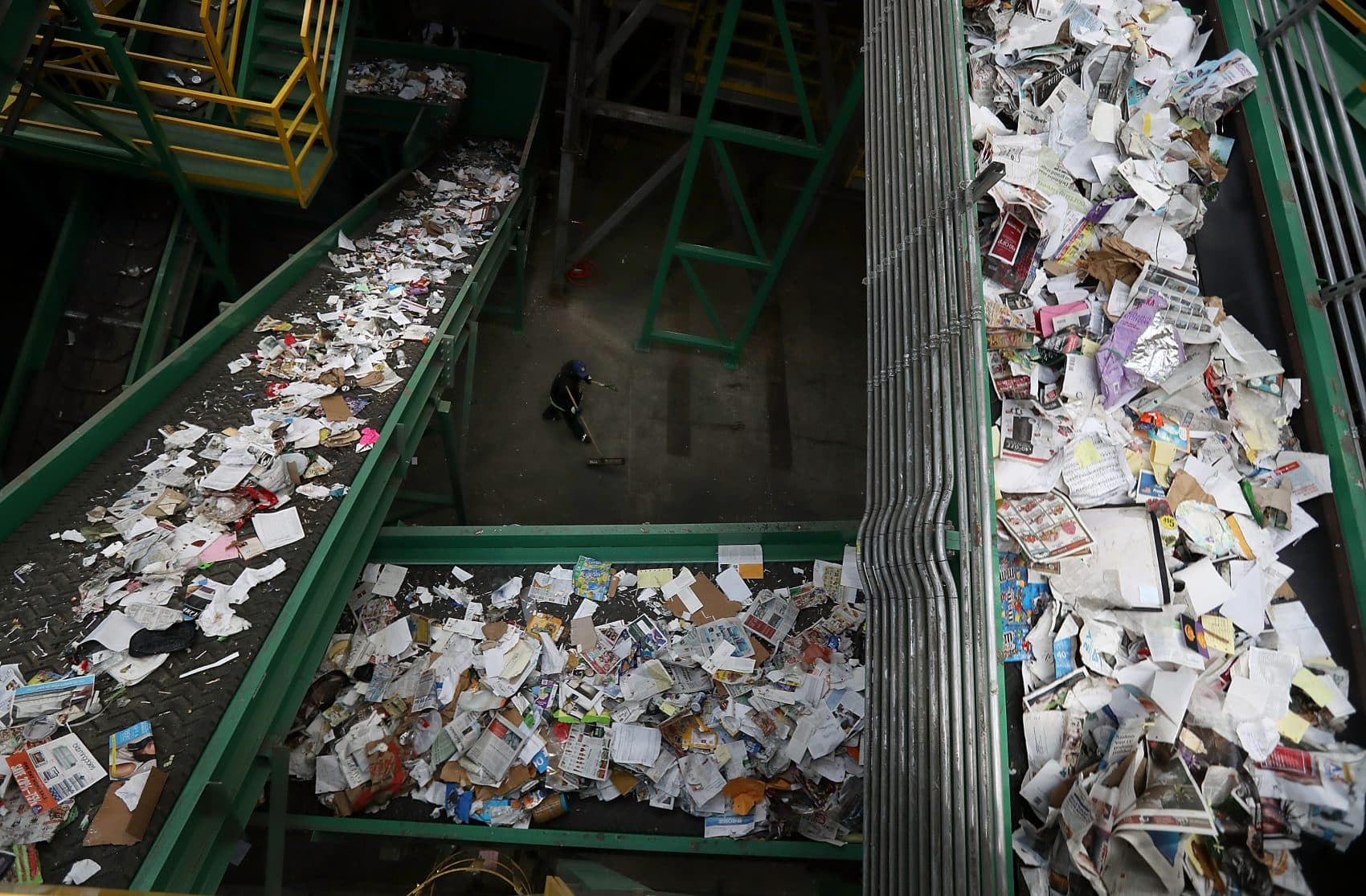Advertisement
Why Isn't More Waste Recycled?
Resume
At a time when many corporations and individuals are trying to lower their carbon footprint and produce less waste, only a small percentage of the world’s waste is recycled.
Here & Now’s Jeremy Hobson talks with Tom Szaky, founder and CEO of TerraCycle, about how we can recycle more and why we should reduce consumption.
Interview Highlights
On why some companies like airlines aren't recycling more
"It seems crazy on the surface, but just to put this all into global perspective, today only 2 percent of the waste in the world is recycled. And the main reason for this not about the technical ability to recycle something. In fact, everything — from diapers to cigarette butts — are all technically recyclable. It simply costs more to collect and process that material than the results are worth. And so the reason your airline... some rare airlines do, but most airlines would just dispose everything, because the cost to train the flight attendants to deal with the logistics, then to actually process it, is not enough to make it all make economic sense. It just costs too much."
On how much we should be recycling
"Well, technically, truly, everything in the world is recyclable, so we'd be at close to 100 percent. The only things today that are prohibited from being recycled are where the law prohibits us. So certain things like medical waste must be incinerated for health and safety reasons. If you take that airline example, when airlines fly internationally, they are not allowed by law to recycle anything due to contamination, but domestically, they could, they just choose not to because of economics. And that's the same in cities and any other situation beyond something as exotic as an airline."
"Recycling is a good solution, but more of a reaction, it doesn't solve the systemic issue that is present."
Tom Szaky
On whether Americans are recycling more than they used to
"We may feel like that, but if you take it from a global point of view, America's recycling is actually declining. And the real reason for this is because two macro issues have occurred. One is that China used to be where America exports most of its recyclable material, because that's where the factories are. And China recently put up a 'green fence,' is how they termed it, and basically made it very difficult to export waste materials to the country, which killed a lot of markets.
"In addition to that, oil is at a very cheap price, and recyclers, traditional recyclers, compete against the price of oil with their recycled materials, and companies are buying less of this material, because recycled materials are now more expensive than virgin materials. So in fact, America's recycling rates have been decreasing recently."
On the consequences of not recycling
"Twenty-five percent [of the world's waste] ends up in our oceans, which is a monumental issue — it's not just the 'Great Pacific Garbage Patch' that gets quite a lot of attention, but every other ocean gyre is a garbage patch. The site of our rivers, whether inland rivers or estuaries, are all covered in waste. It's not just a litter issue, or it just makes the natural environment not look good. But if you eat a big-bodied fish today, maybe at your favorite sushi restaurant, you are eating micro-plastics already. And it's a monstrous pollutant that we could solve.
"This is the key thing — garbage is a very modern idea. It only really came about in the early-1950s with two things: the advent of complex materials, and the invention of consumerism. Someone alive in the 1940s bought 10 times less physical objects than someone alive today. And all those objects are made now from things that nature has no systems to handle, things that are really cool like plastics and so on, but nature doesn't know what to do with them, when those objects 100 years ago were made from woods and metals, things nature had absolutely adequate systems to handle. That's what needs to change. Recycling is a good solution, but more of a reaction, it doesn't solve the systemic issue that is present."
This segment aired on April 4, 2017.